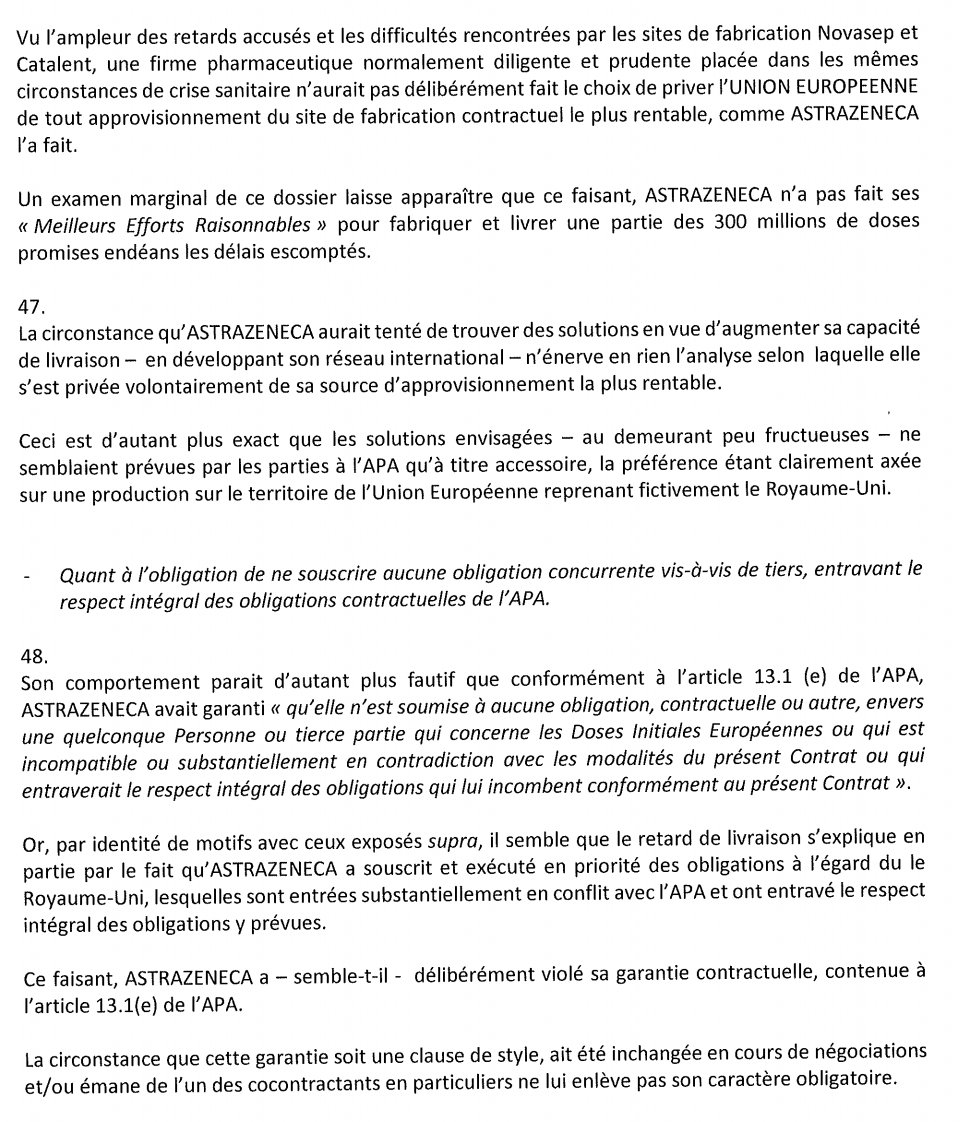
Belgian court finds AstraZeneca "deliberately violated" contract with the EU by excluding British factory Oxford Biomedica in supplying contracted vaccines, and orders it to use the factory if needed to meet orders.
"AstraZeneca did not make its "Best Reasonable Efforts" it finds


"AstraZeneca did not make its "Best Reasonable Efforts" it finds



In its conclusion the court orders AstraZeneca to deliver vaccines on a fixed schedule, or face a €10 fine per late dose.
However, AZ has already delivered most of these. The court found it couldn't impose a timetable for the outstanding ~220mln doses due (company says end-year)
However, AZ has already delivered most of these. The court found it couldn't impose a timetable for the outstanding ~220mln doses due (company says end-year)

Confusingly, both sides welcomed the judgment.
- AstraZeneca said it won, because the court says that the EU's order does not have priority over other contracts
- EU claimed victory as well, as the court found AZ violated its contract and that it should use the British factory
- AstraZeneca said it won, because the court says that the EU's order does not have priority over other contracts
- EU claimed victory as well, as the court found AZ violated its contract and that it should use the British factory
The EU said this was about getting its 300 million vaccine doses, not about winning an argument.
The court has only compelled AZ to furnish 50 million of these, but the EU thinks the precedent and order to use British factory will mean remaining ~220 million will come quicker.
The court has only compelled AZ to furnish 50 million of these, but the EU thinks the precedent and order to use British factory will mean remaining ~220 million will come quicker.
Court says it can't order AZ to deliver all 220 mln doses because it can't pre-judge - the company may yet comply with its contract on those.
It also says it can't grant a "defacto priority right" to the EU, noting there are "contentious contractual obligations" to other buyers.
It also says it can't grant a "defacto priority right" to the EU, noting there are "contentious contractual obligations" to other buyers.
In sum, EU didn't get all it wanted, but AstraZeneca was found at serious fault: "faute lourde".
Not using the British factory had "significant damaging repercussions" that were "predictable" and "for the benefit of third parties, in disregard of its contractual obligations".
Not using the British factory had "significant damaging repercussions" that were "predictable" and "for the benefit of third parties, in disregard of its contractual obligations".

The court's ruling on legal costs says "each of the parties is partially unsuccessful in their respective claims".
But it orders AstraZeneca to pay 70% of legal fees, and the European Union 30%.
But it orders AstraZeneca to pay 70% of legal fees, and the European Union 30%.

Tricky story to report with both sides seeming to claim victory. I chose to base my lede on court judgement rather than claims of either side - 67 pages of legal French so I was way slower than competitors. Might use as an exercise for journalism students.
irishtimes.com/business/healt…
irishtimes.com/business/healt…
• • •
Missing some Tweet in this thread? You can try to
force a refresh








